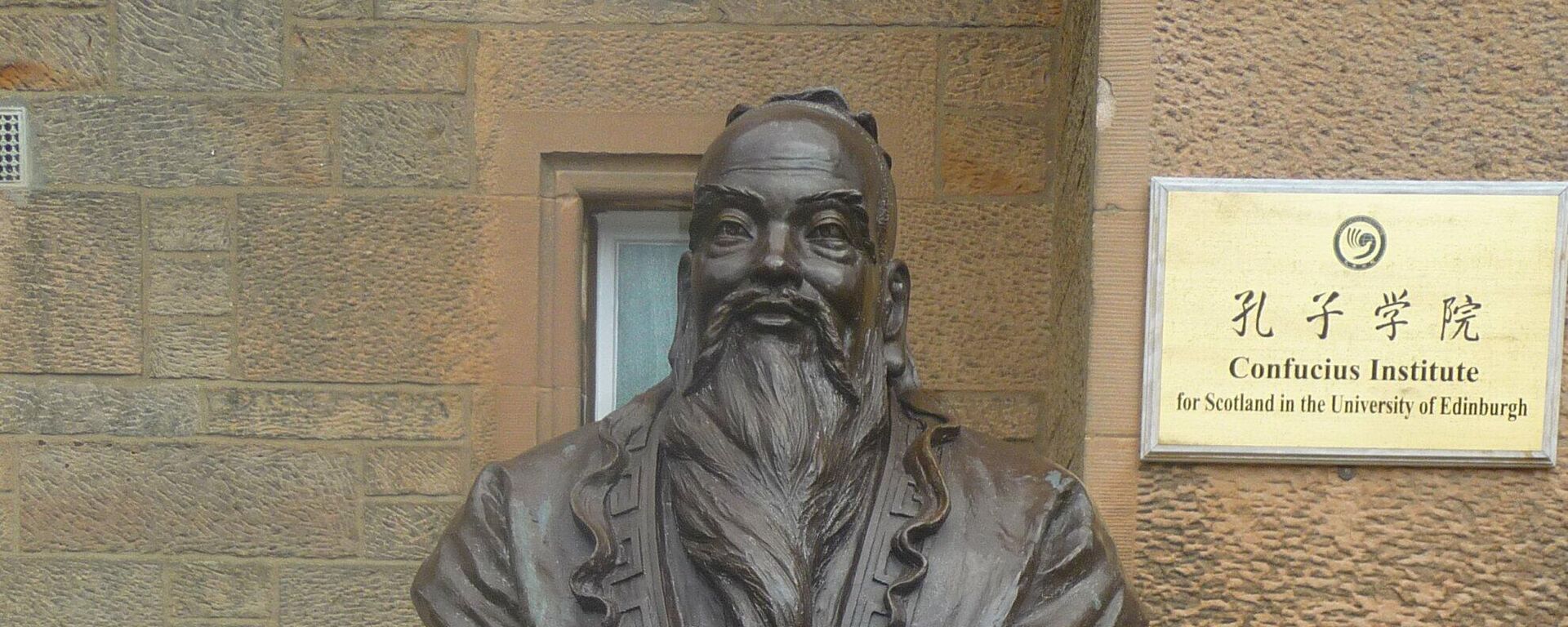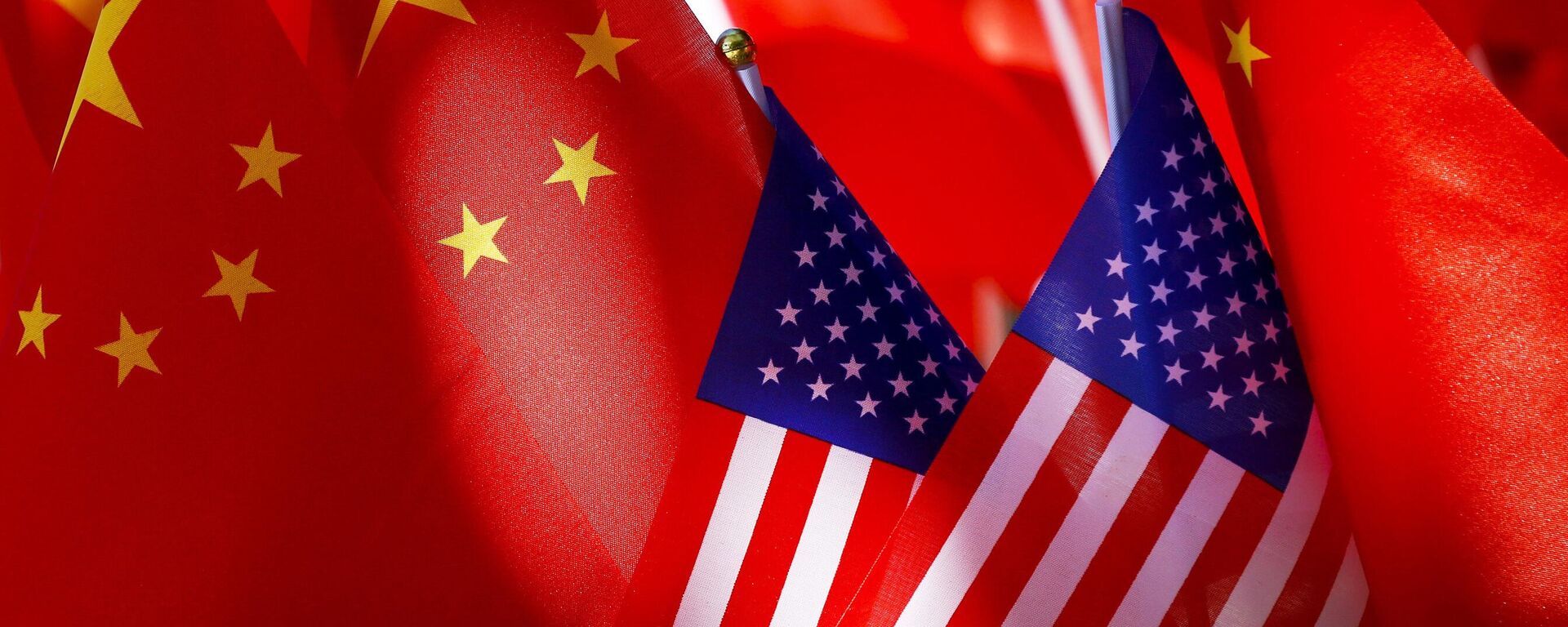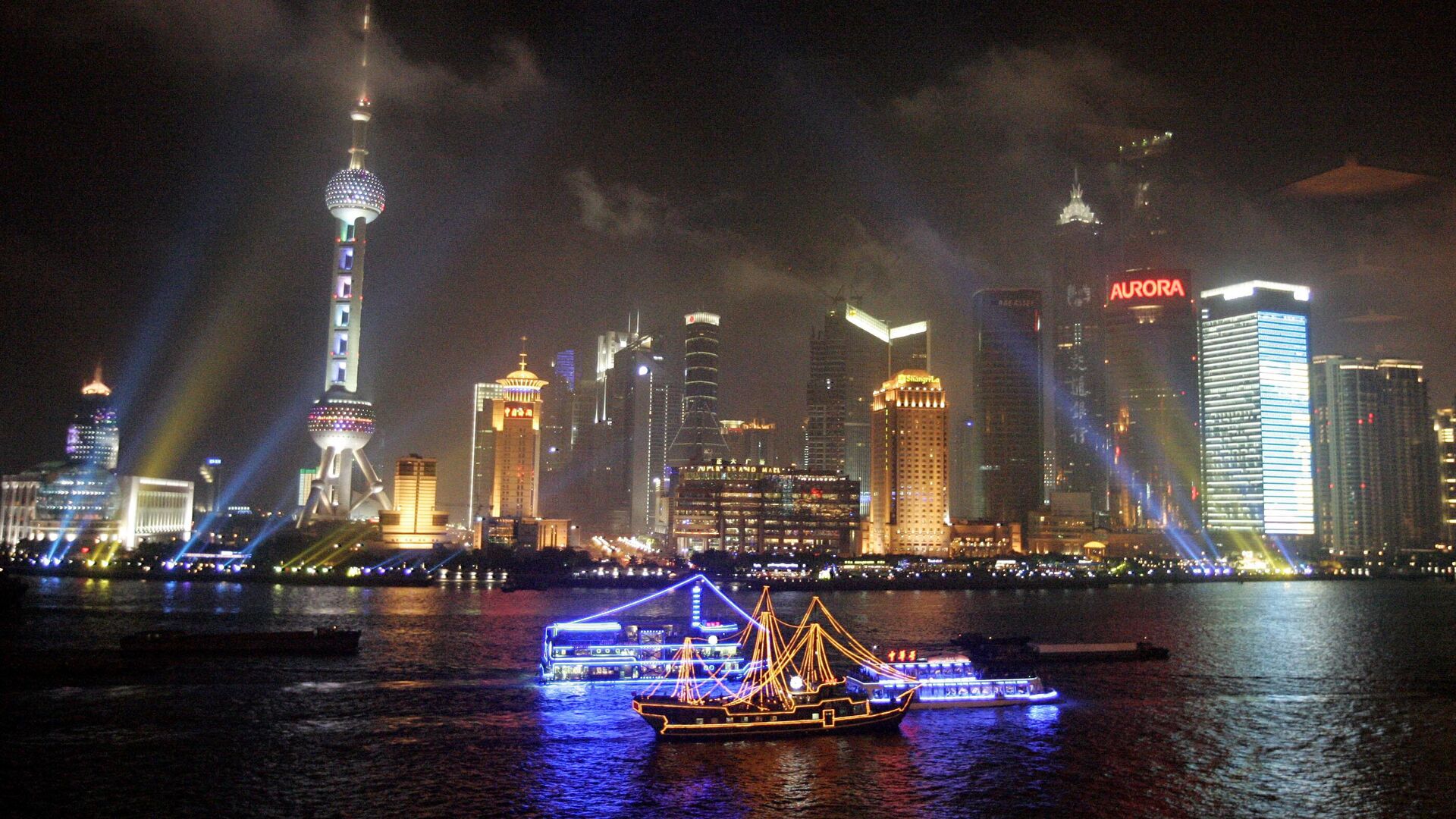https://sputnikglobe.com/20240924/china-urges-win-win-cooperation-as-us-sees-zero-sum-game-1120266713.html
China Urges Win-Win Cooperation as US Sees Zero-Sum Game
China Urges Win-Win Cooperation as US Sees Zero-Sum Game
Sputnik International
The People’s Republic of China continues to seek mutually beneficial partnerships with the United States and the rest of the world but US leaders are committed to seeing the Asian country’s rise as a challenge to its hegemony, according to writer and peace activist KJ Noh.
2024-09-24T04:35+0000
2024-09-24T04:35+0000
2024-09-24T04:35+0000
kamala harris
michele flournoy
china
kurt campbell
silk road
belt and road initiative
us-china relations
us-china trade war
south china morning post
analysis
https://cdn1.img.sputnikglobe.com/img/07e8/03/12/1117395998_0:303:2800:1878_1920x0_80_0_0_d39baec276ab10f0b87fef6b948bd5b5.jpg
The People’s Republic of China continues to seek mutually beneficial partnerships with the United States and the rest of the world but US leaders are committed to seeing the Asian country’s rise as a challenge to its hegemony, according to writer and peace activist KJ Noh.Noh appeared on Sputnik’s The Critical Hour program Monday to discuss the issue as senior Chinese diplomat Wu Hailong accused US Vice President Kamala Harris of failing to see the big picture in the ongoing economic rivalry between the two superpowers.“You cannot always think that you have to win [and] always assume that others can only lose,” said Hailong, referring to comments made by the Democratic presidential candidate during her acceptance speech last month. Harris insisted the United States – not China – should lead the world in advances related to space and artificial intelligence, characterizing the rivalry between the US and China as a “competition for the 21st century.”“Why is the US the only one that wins? This perspective is such a small picture and this is the problem with the perceptions of the United States… We do not want to be the leader of the world and more importantly, we do not want to dominate the world and be the next America,” the diplomat insisted.“The Chinese want win-win relations,” Noh noted, using a term that is frequently employed in official Chinese public statements. “They want mutually beneficial relations and they believe that this can be done. And it's not simply a policy. It is actually the way the economic system works if you have good mutual equitable relations.”Beijing has increasingly sought to pursue economic development that provides tangible benefits for partnered countries, building high speed rail and other projects through its Belt and Road Initiative. The program seeks to reestablish trade patterns of the historical Silk Road, building infrastructure that helps neighboring countries develop while also enhancing trade with China.China has referred to the initiative as “a key pillar of the global community of shared future,” claiming it will help bridge economic divides caused by uneven economic development in the neoliberal era. “It is imperative to address such global problems as sluggish economic growth, shortcomings in economic governance, and imbalanced economic development,” the country insisted in a recent statement. “It is no longer acceptable that only a few countries dominate world economic development, control economic rules, and enjoy development fruits. The BRI targets development not only for China but for the world at large.”“The people who are in control are the people from [the Center for a New American Security think tank], it's Kurt Campbell, Michele Flournoy and the other neocons who are in the administration and they will be controlling the foreign policy agenda, which has been set for decades now,” he claimed. “Essentially, it's war with China.”
https://sputnikglobe.com/20240923/uk-defunds-confucius-institutes-in-latest-example-of-western-anti-china-freakout-1120252812.html
https://sputnikglobe.com/20240920/us-unveils-plan-for-warfighting-navy-with-eye-on-china-threat-1120223756.html
https://sputnikglobe.com/20240917/diplomacy-with-china-more-important-now-than-ever-before---us-state-dept-1120180058.html
china
Sputnik International
feedback@sputniknews.com
+74956456601
MIA „Rossiya Segodnya“
2024
John Miles
https://cdn1.img.sputnikglobe.com/img/07e8/01/19/1116388787_0:0:1316:1316_100x100_80_0_0_77e70d36afd983012b1c5d38ddb84156.jpg
John Miles
https://cdn1.img.sputnikglobe.com/img/07e8/01/19/1116388787_0:0:1316:1316_100x100_80_0_0_77e70d36afd983012b1c5d38ddb84156.jpg
News
en_EN
Sputnik International
feedback@sputniknews.com
+74956456601
MIA „Rossiya Segodnya“
Sputnik International
feedback@sputniknews.com
+74956456601
MIA „Rossiya Segodnya“
John Miles
https://cdn1.img.sputnikglobe.com/img/07e8/01/19/1116388787_0:0:1316:1316_100x100_80_0_0_77e70d36afd983012b1c5d38ddb84156.jpg
china win-win partnerships, china win-win cooperation, china win-win belt and road, us china zero sum game, us threatened by china rise, us-china war, us-china conflict, trade war, us hegemony, multipolar world order, polycentric world order
china win-win partnerships, china win-win cooperation, china win-win belt and road, us china zero sum game, us threatened by china rise, us-china war, us-china conflict, trade war, us hegemony, multipolar world order, polycentric world order
China Urges Win-Win Cooperation as US Sees Zero-Sum Game
Beijing has increasingly sought to pursue economic development that provides tangible benefits for partnered countries, building high speed rail and other projects through its Belt and Road Initiative.
The People’s Republic of China continues to seek mutually beneficial partnerships with the United States and the rest of the world but US leaders are committed to seeing the Asian country’s rise as a challenge to its hegemony, according to writer and peace activist KJ Noh.
Noh appeared on
Sputnik’s The Critical Hour program Monday to discuss the issue as senior Chinese diplomat Wu Hailong accused US Vice President Kamala Harris of failing to see the big picture in the ongoing economic rivalry between the two superpowers.
“You cannot always think that you have to win [and] always assume that others can only lose,” said Hailong, referring to comments made by the Democratic presidential candidate during her acceptance speech last month. Harris insisted the United States – not China – should lead the world in advances related to space and artificial intelligence, characterizing the rivalry between the US and China as a “competition for the 21st century.”
“Why cannot everyone win?” Hailong asked.
“Why is the US the only one that wins? This perspective is such a small picture and this is the problem with the perceptions of the United States… We do not want to be the leader of the world and more importantly, we do not want to dominate the world and be the next America,” the diplomat insisted.

23 September 2024, 02:55 GMT
“The Chinese want win-win relations,” Noh noted, using a term that is frequently employed in official Chinese public statements. “They want mutually beneficial relations and they believe that this can be done. And it's not simply a policy. It is actually the way the economic system works if you have good mutual equitable relations.”
“I give you something you need, you give me something I need and we both get efficiencies from that. Or I give you something and that helps you develop something, which helps me develop something and we create this kind of knowledge or technical or scientific common. Win-win is how the human species developed. It's how human societies developed and what the US wants to do is it wants to turn it into zero-sum. Win-lose or, rather, you lose, we must win.”
Beijing has increasingly sought to pursue economic development that provides tangible benefits for partnered countries, building high speed rail and other projects through its Belt and Road Initiative. The program seeks to reestablish trade patterns of the historical Silk Road, building infrastructure that helps neighboring countries develop while also enhancing trade with China.

20 September 2024, 15:07 GMT
China has referred to the initiative as “a key pillar of the global community of shared future,”
claiming it will help bridge economic divides caused by uneven economic development in the neoliberal era. “It is imperative to address such global problems as sluggish economic growth, shortcomings in economic governance, and imbalanced economic development,” the country insisted in a recent statement.
“It is no longer acceptable that only a few countries dominate world economic development, control economic rules, and enjoy development fruits. The BRI targets development not only for China but for the world at large.”
“The only way the US can [turn development into a zero-sum game] is actually by kneecapping China, or engaging in other underhanded actions, or – more likely and this becomes more and more visible – engaging in hot war,” said Noh. “it's a terrible, terrible policy. But, the question is, does Kamala Harris know what she's doing?”
“The people who are in control are the people from [the Center for a New American Security think tank], it's Kurt Campbell, Michele Flournoy and the other neocons who are in the administration and they will be controlling the foreign policy agenda, which has been set for decades now,” he claimed. “Essentially, it's war with China.”

17 September 2024, 17:20 GMT






